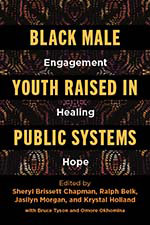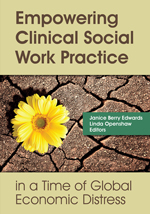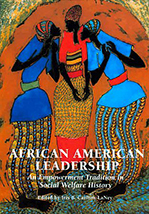Using firsthand accounts from 200 Black adolescents, Black Male Youth Raised in Public Systems: Engagement, Healing, Hope validates the fears, anxieties, and complexities of these youth. Editors Sheryl Brissett Chapman, Ralph Belk, Jasilyn Morgan, and Krystal Holland, with Bruce Tyson and Omore Okhomina, point to the need for adults to “get out of the way” so they are better positioned to obtain access to understanding how these youth consider their life journeys and under what terms they allow a relationship with an adult, which is critical and necessary for their healing. Specifically, this book presents alternative frameworks that invite practitioners to reconsider their approach and encourage academics to explore new avenues of inquiry.
fears, anxieties, and complexities of these youth. Editors Sheryl Brissett Chapman, Ralph Belk, Jasilyn Morgan, and Krystal Holland, with Bruce Tyson and Omore Okhomina, point to the need for adults to “get out of the way” so they are better positioned to obtain access to understanding how these youth consider their life journeys and under what terms they allow a relationship with an adult, which is critical and necessary for their healing. Specifically, this book presents alternative frameworks that invite practitioners to reconsider their approach and encourage academics to explore new avenues of inquiry.
 Starting with a discussion of poverty and relevant global social policies, Empowering Clinical Social Work Practice in a Time of Global Economic Distress, edited by Janice Berry Edwards and Linda Openshaw, explores how economic distress exacerbates already stressful situations, and how those challenges surface in clinical practice. The ensuing chapters examine poverty and its impact on children and adolescents, older adults, adults with disabilities, veterans, immigrants, and other vulnerable groups. Financial insecurity is viewed through the lens of everyday clinical practice and how it interacts with trauma, attachment theory, psychopathology, and psychopharmacology.
Starting with a discussion of poverty and relevant global social policies, Empowering Clinical Social Work Practice in a Time of Global Economic Distress, edited by Janice Berry Edwards and Linda Openshaw, explores how economic distress exacerbates already stressful situations, and how those challenges surface in clinical practice. The ensuing chapters examine poverty and its impact on children and adolescents, older adults, adults with disabilities, veterans, immigrants, and other vulnerable groups. Financial insecurity is viewed through the lens of everyday clinical practice and how it interacts with trauma, attachment theory, psychopathology, and psychopharmacology.
Rather than emphasizing deficits, chapter authors advocate for a strengths-based perspective, focusing on the positive aspects of the client’s life, such as their values, skills, talents, hopes, resiliencies, and community. By focusing on the client’s strengths, the practitioner can gain a better understanding of the client; identify the approaches to care that will be most successful; and inspire hope, enthusiasm, and growth.
For far too long, the huge contribution of African Americans to the social work profession has been relegated to little more than a footnote. The truth is, these forward-thinking individuals enhanced the quality of life within and outside their communities for generations. Their stories have never been told. Until now.
footnote. The truth is, these forward-thinking individuals enhanced the quality of life within and outside their communities for generations. Their stories have never been told. Until now.
Sixteen painstakingly researched chapters, written by social workers, highlight the distinct roles of African American social work pioneers from the 1890s through the 1940s. African American Leadership: An Empowerment Tradition in Social Welfare History, edited by Iris B. Carlton-LaNey, discusses the birth of social welfare activities, both informal and formal, and introduces founding members of organizations such as the National Urban League and the National Association of Colored Women. Written from a social work perspective and framed within a historical context, these profiles and their accompanying lessons help today’s practitioner make the connection to current issues.
___________________________________________________
Learn more about all NASW Press titles, including books, eBooks, CEU books, reference works, journals, brochures, and standards by visiting the Press website. If you have questions, please email NASWPress@BrightKey.net or call 1-800-227-3590.
___________________________________________________
Did You Know?
NASW Press offers continuing education credits on a wide array of books via the NASW Social Work Online CE Institute. Titles range from burnout, self-care, and meditation to ethical standards in social work, digital practice, economic well-being, social entrepreneurship, and mentoring women for leadership, to name a few. Learn more.




